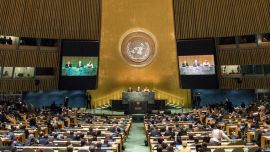Argentina’s new wealth tax has netted just two percent of its target figure ahead of its original deadline, with the nation’s richest citizens evidently in no hurry to pay up.
The government collected only 6.063 billion pesos (US$66 million) from its one-off “extraordinary contribution” in the course of March, a communiqué reported on Monday night (not including advance payments of 504 million pesos).
Although Argentina’s richest individuals now have until April 16 to pay the tax – after authorities extended the original March 30 deadline – the intake thus far has been well below the projected target of 300 billion pesos when Congress approved the bill late last year.
The tax was designed to help cover some of the costs incurred by the government in meeting the health crisis triggered by the coronavirus pandemic (although other areas have since been added). Argentines owning more than 200 million pesos worth of assets must pay between 2.25 and 5.25 percent of that fortune, depending on its size and whether it is invested at home or abroad.
Running into obstacles implementing the measure, the AFIP tax bureau has already postponed the original deadline while offering ‘cuotas’ or payment plans to the approximately 13,000 people subject to the levy, of whom over 1,000 are reportedly resisting payment while a couple of them have already successfully defied the tax in court. Only seven lawsuits have been filed so far but the government is expecting an avalanche in the next fortnight.
Despite these problems facing the wealth tax, Argentina’s general fiscal picture has improved. Revenues improved 72 percent last month with respect to the previous March, according to the data published last Monday, well ahead of annual inflation of close to 40 percent.
Only 20 percent of this tax will actually go to covering health costs from the pandemic – more (25 percent) is earmarked for the exploration and production of natural gas, 20 percent to support the PyMEs small and medium-sized companies with subsidies and loans, 20 percent to relaunch Progresar scholarships for young students and 15 percent to contract co-operatives to urbanise low-income neighbourhoods.
– TIMES/BLOOMBERG/PERFIL



















Comments